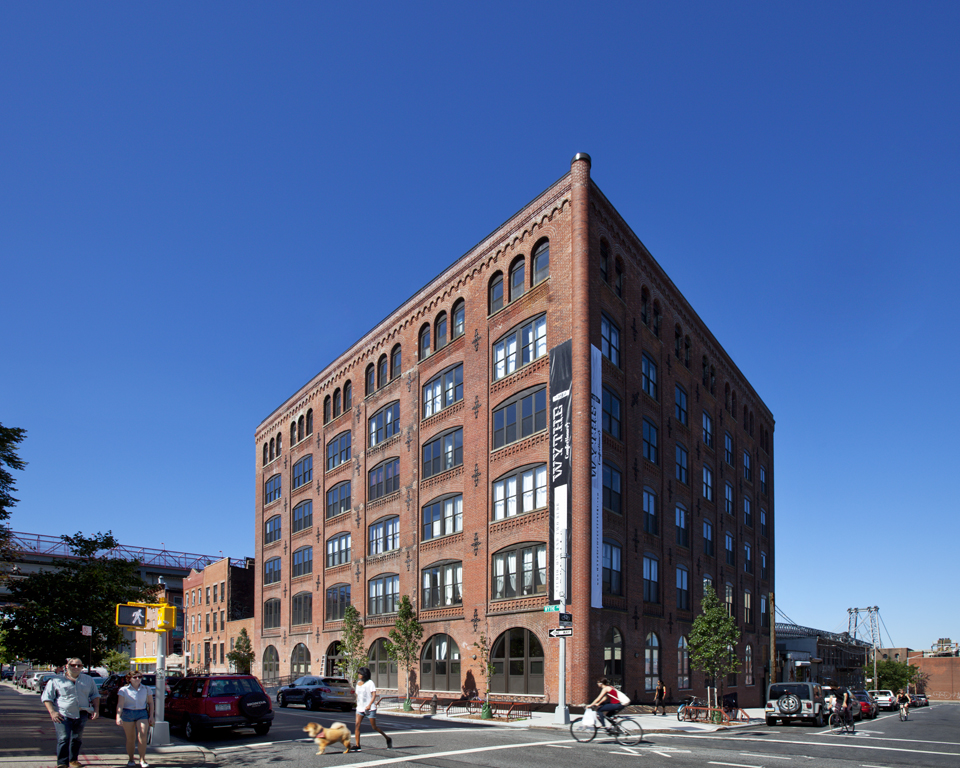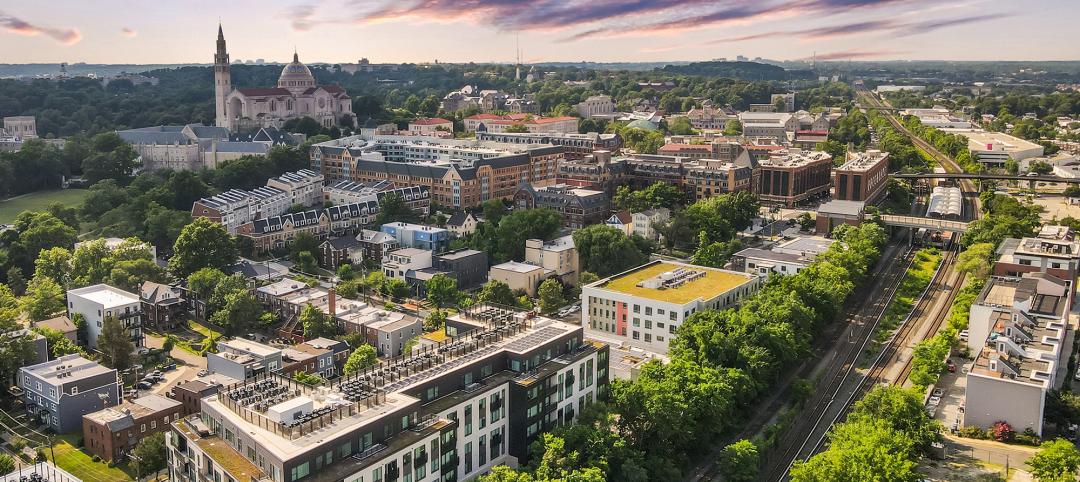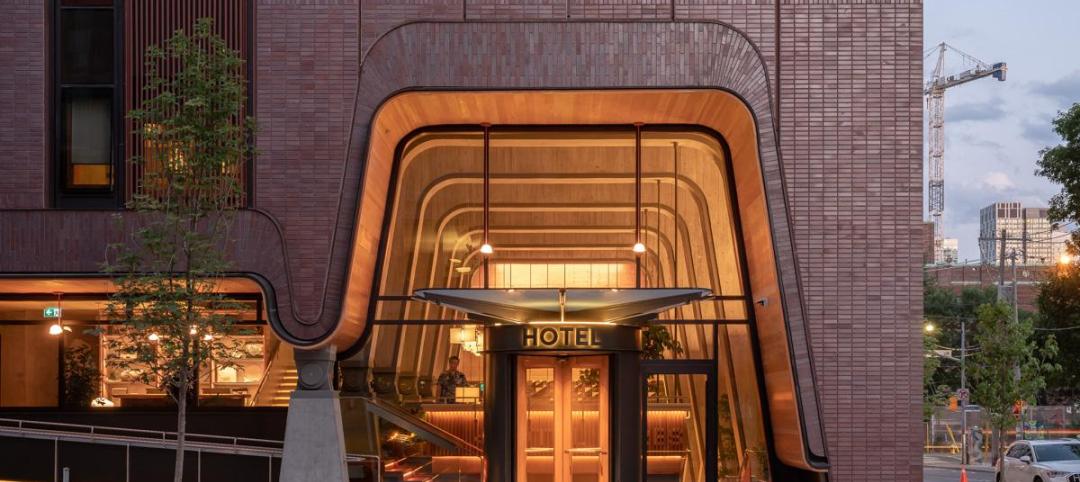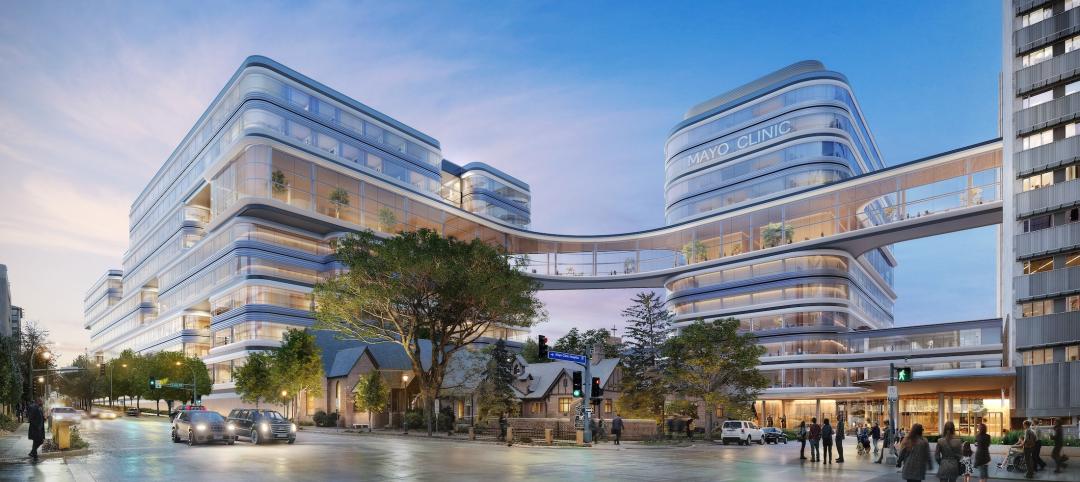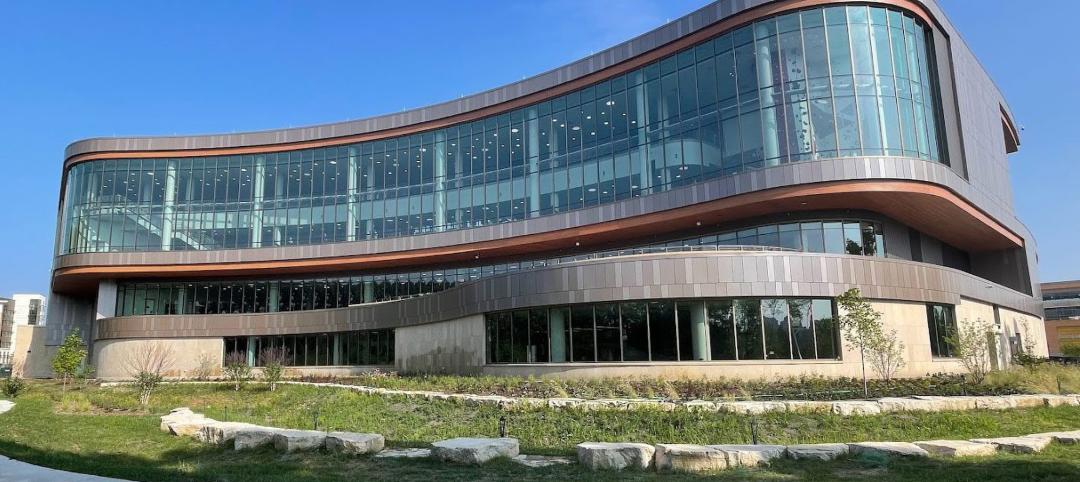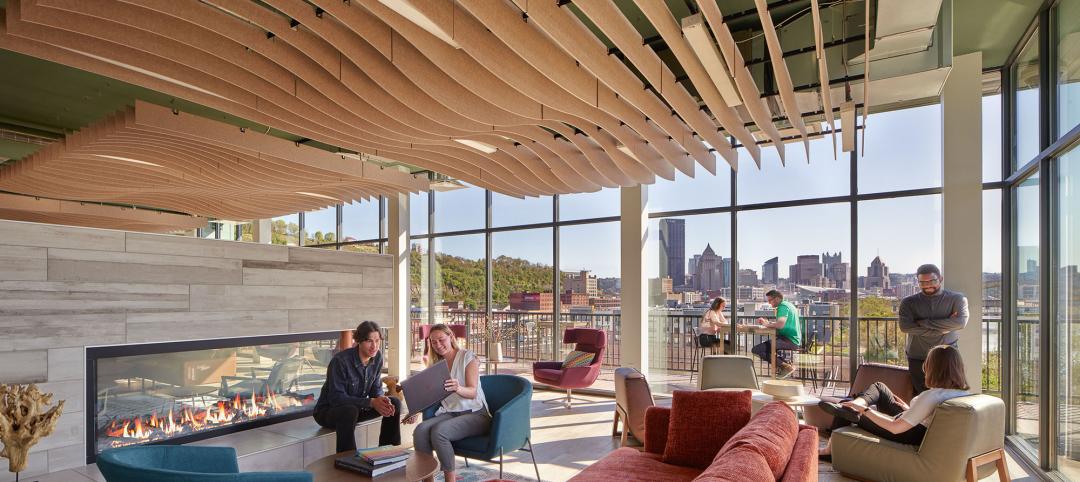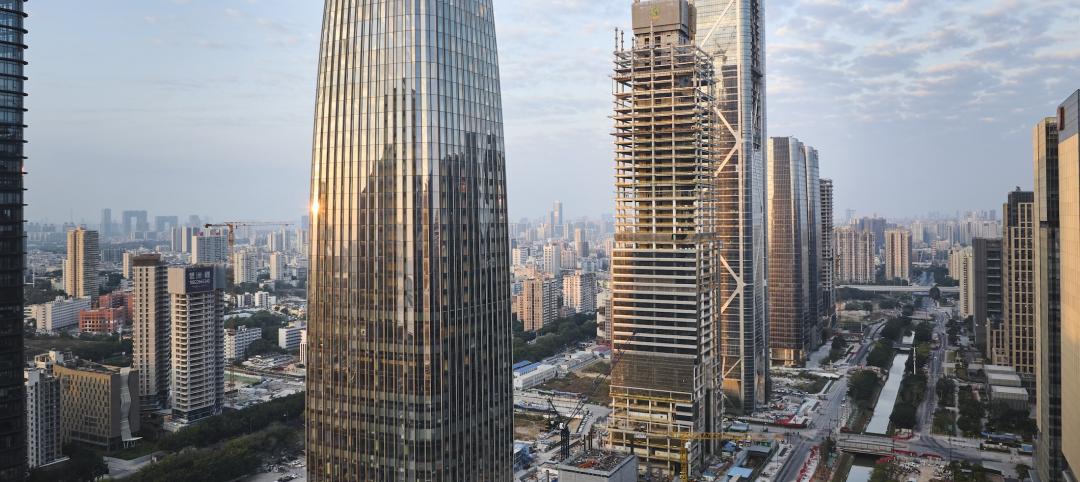The New York office Perkins Eastman joins developer/builder Caro Enterprises in celebrating the completion of the unique 69-unit Wythe Confectionery apartments at 390 Wythe Avenue in Williamsburg, Brooklyn. The conversion has restored the building’s original beauty, with plentiful exposed brick, original wooden beams, and wooden ceilings.
Principal in Charge Shawn Basler AIA says of the building’s transformation, “It has been very gratifying to be part of the effort to retain the architectural heritage in such a vibrant and diverse neighborhood.”
Originally built to house the Matchett Candy factory at the turn of the 19th century, the pine framed brick building was one of the few candy factories in Williamsburg. The building is a testament to the area’s flourishing industrial past, and as a physical example of the commitment to the preservation of the neighborhood character and our vital connections to its heritage. As a piece of Brooklyn history, Perkins Eastman and the developer went to great lengths to preserve and restore original architectural features, while reclaiming and reusing materials when possible in the studio, one- and two-bedroom loft apartments.
The team retained architectural features like the brick barrel-hinge corner, a corbelled brick cornice, arched windows, massively scaled ground floor openings, and decorative brickwork punctuated with unique decorative iron ties across the facade. Brick and timber columns have once again been exposed and highlighted, cast iron column straps and capitals have been brought back to life, and the original heavy-timbered plank flooring was restored and retained as ceilings--all combined with modern fixtures and finishes throughout. Other native materials, including extra timbers and slate flooring that were not used during the restoration, were reclaimed for reuse in the public and shared spaces of the building, designed by Visconti Architecture.
Related Stories
Green | Apr 8, 2024
LEED v5 released for public comment
The U.S. Green Building Council (USGBC) has opened the first public comment period for the first draft of LEED v5. The new version of the LEED green building rating system will drive deep decarbonization, quality of life improvements, and ecological conservation and restoration, USGBC says.
Codes and Standards | Apr 8, 2024
Boston’s plans to hold back rising seawater stall amid real estate slowdown
Boston has placed significant aspects of its plan to protect the city from rising sea levels on the actions of private developers. Amid a post-Covid commercial development slump, though, efforts to build protective infrastructure have stalled.
Sustainability | Apr 8, 2024
3 sustainable design decisions to make early
In her experience as an architect, Megan Valentine AIA, LEED AP, NCARB, WELL AP, Fitwel, Director of Sustainability, KTGY has found three impactful sustainable design decisions: site selection, massing and orientation, and proper window-to-wall ratios.
Brick and Masonry | Apr 4, 2024
Best in brick buildings: 9 projects take top honors in the Brick in Architecture Awards
The Ace Hotel Toronto, designed by Shim-Sutcliffe Architects, and the TCU Music Center by Bora Architecture & Interiors are among nine "Best in Class" winners and 44 overall winners in the Brick Industry Association's 2023 Brick in Architecture Awards.
Retail Centers | Apr 4, 2024
Retail design trends: Consumers are looking for wellness in where they shop
Consumers are making lifestyle choices with wellness in mind, which ignites in them a feeling of purpose and a sense of motivation. That’s the conclusion that the architecture and design firm MG2 draws from a survey of 1,182 U.S. adult consumers the firm conducted last December about retail design and what consumers want in healthier shopping experiences.
Healthcare Facilities | Apr 3, 2024
Foster + Partners, CannonDesign unveil design for Mayo Clinic campus expansion
A redesign of the Mayo Clinic’s downtown campus in Rochester, Minn., centers around two new clinical high-rise buildings. The two nine-story structures will reach a height of 221 feet, with the potential to expand to 420 feet.
Sports and Recreational Facilities | Apr 2, 2024
How university rec centers are evolving to support wellbeing
In a LinkedIn Live, Recreation & Wellbeing’s Sadat Khan and Abby Diehl joined HOK architect Emily Ostertag to discuss the growing trend to design and program rec centers to support mental wellbeing and holistic health.
Architects | Apr 2, 2024
AE Works announces strategic acquisition of WTW Architects
AE Works, an award-winning building design and consulting firm is excited to announce that WTW Architects, a national leader in higher education design, has joined the firm.
Office Buildings | Apr 2, 2024
SOM designs pleated façade for Star River Headquarters for optimal daylighting and views
In Guangzhou, China, Skidmore, Owings & Merrill (SOM) has designed the recently completed Star River Headquarters to minimize embodied carbon, reduce energy consumption, and create a healthy work environment. The 48-story tower is located in the business district on Guangzhou’s Pazhou Island.
K-12 Schools | Apr 1, 2024
High school includes YMCA to share facilities and connect with the broader community
In Omaha, Neb., a public high school and a YMCA come together in one facility, connecting the school with the broader community. The 285,000-sf Westview High School, programmed and designed by the team of Perkins&Will and architect of record BCDM Architects, has its own athletic facilities but shares a pool, weight room, and more with the 30,000-sf YMCA.


